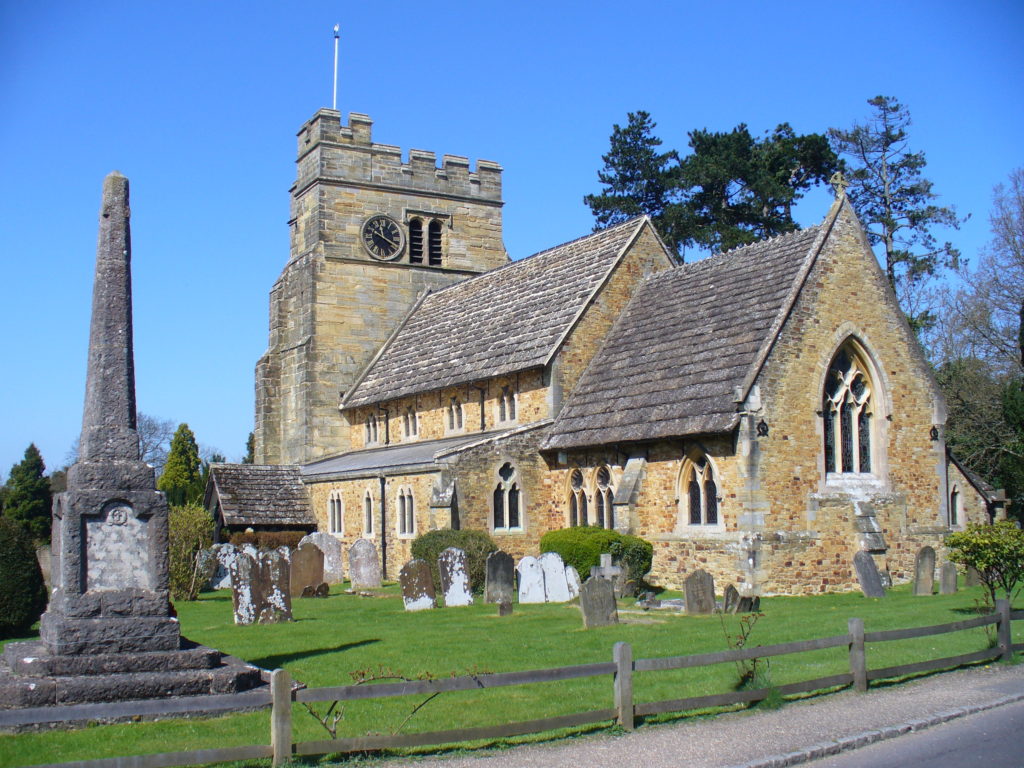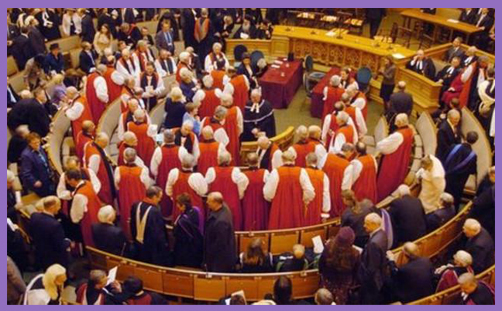
While studying the life and times of Joan of Arc for a lecture I was giving, I was reminded of one distinctive feature of Western mediaeval society. The whole of that society was held together through a complicated system of patronage. Power was not only possessed by those who commanded the most soldiers, it was also exercised by those who possessed the legal and traditional right to put others in positions of power. To possess the power of patronage was to control others and to be the focus of influence right across society. Joan of Arc was only able to make headway in her short meteoric career having persuaded individuals possessing the power of patronage to back her.
Patronage, the right to raise up or cast down another person, is still a power that we find in our society. The Church of England is one contemporary institution that still openly exercises the power of patronage in its affairs. Arguably this manifestation of patronage is less salient than it was in the days of Jane Austen when Mr Collins, in Pride and Prejudice, used all his charm to flatter his patron, Lady De Bourgh for the right to occupy a particular vicarage and the substantial income that went with it. My old parish in Gloucestershire was under the patronage of a Cambridge college and its endowed income of £800 was sufficient in Victorian times to keep a vicar in style. Other parishes were worth a quarter of this and the vicars who occupied lesser posts scrambled to survive, like Mr Quiverful in the Trollope novels, in a permanent state of genteel poverty. It was no fun to live in a falling down vicarage with inadequate resources to heat the building or keep out the rain.
The traditional power of patronage that was exercised by bishops and others over the parishes of England was arguably the greatest source of power that they possessed. Keeping on the right side of this power was perhaps the only way clergy had to escape out of abject poverty into a position of relative affluence. A black mark against your name could mark your record for ever and prevent you ever finding a post which would keep you in reasonable comfort. Clergy were rightly in awe of those who had this power to create or destroy a career and a livelihood.
Anthony Trollope’s novels are also, in many ways, an exploration of the way that the exercise of patronage power was exercised and experienced in Victorian times. Today things have changed for the better. In the first place, stipends of the full-time clergy below the level of Archdeacons and Deans are largely the same. When I was ordained fifty years ago, there were vicars in some parishes earning seven times the level of their curates and living in far superior accommodation. Inflation has destroyed these differentials of income. A second change today is that posts are now mostly advertised in the church press and the appointments system is far more open. A transparent interview process takes place for most posts, even for bishops. But, as a recent letter in the Church Times points out, the exercise of patronage is an issue that is still a live one as we ask questions about how Bishop Peter Ball was elevated to Gloucester in 1991. It transpires that two other dioceses, Norwich and Portsmouth, had both refused to consider his candidature on the grounds of Ball’s known predilection for the company of young men. The CT letter from the retired bishop, Colin Buchanan, hints at political interference in this appointment. Patronage on the part of the ‘great and the good’ was thus apparently allowed to override normal checks and balances. To become a diocesan bishop in 1991 did require impeccable references. One of those who provided such a reference had to be his Diocesan bishop, the then Bishop of Chichester, Eric Kemp. Are we to believe that Bishop Kemp had no insight or knowledge of the rumours around Peter Ball? Kemp’s legacy of having allowed Bishop Ball’s translation to Gloucester and later obstructing the police enquiries into his conduct have left a mark against the bishop’s historical legacy which is unlikely ever to be erased.
The power of patronage in the church may be indeed weakening in the way that democratic processes reach further into the management of the church. And yet, even as it weakens, we need to have a full awareness of how important a role patronage has played in the church in the very recent past. In some dioceses all posts are advertised, even for senior clergy such as archdeacons and residentiary canons. Other dioceses, such as Chichester, appear to advertise relatively few of their posts. Most appointments seem to be done ‘in-house’. For one clergyman at least, this near total episcopal control over livings in Chichester has been experienced as an abuse of power.
Among the many documents released by IICSA in the course of its hearings was a witness statement by one Fr. Nicholas Flint, a Chichester incumbent. His testimony strongly criticises the way he felt he had been treated by the diocese. His complaints directly and indirectly touch on issues of patronage power. Flint had for a long time felt drawn with others in the diocese to support Peter Ball after he was cautioned in 1992. The eventual conviction of Ball in 2015 and the revelation of the full extent of his offending left him and other supporters in considerable confusion and dismay. His self-description was that of being ‘collateral damage’ to the whole sad affair. Eventually he obtained an appointment to see the Bishop of Chichester, Martin Warner, in October 2015 and he hoped to receive some pastoral care and support. He needed some understanding for all he had suffered in trying to respond to local perpetrators and victims who were part of the wider abuse scandals in the diocese. He was also looking for a possible move within the diocese after being in the same post from 21 years. The Bishop stated, in Flint’s words, that ‘he did not have anything for me in his diocese’. Whatever else was being communicated, this declaration by the Bishop is of interest because it indicates that the Bishop regarded himself at the sole dispenser of patronage in the diocese. This old-fashioned approach to the filling of appointments also runs counter, according to Fr Flint, to one of the recommendations of the Archbishop’s Visitation to Chichester Diocese a few years earlier. I have no figures on the dioceses where a bishop could make such a statement about appointments, but I would hope that these dioceses are now firmly in the minority. Centralised control of the power of patronage may be one of the factors that had helped to create the Chichester ‘scandals’ in the first place. It is strange as well as regrettable that the current Bishop of the diocese has no apparent insight into the possibility that a secretive structure from which outsiders are excluded is also one where malefactors can most easily hide. The old-fashioned feudal attitudes which exemplified the ‘reign’ of Bishop Kemp have no place in the 21st century. The current Bishop of Chichester should be making every effort to transform that culture in every possible way. The interaction with Fr Flint in 2015 suggests that the old culture of patronage and patriarchal power was then still very much alive in the Chichester Diocese.
This blog invites the reader to become better sensitised to the existence of a silent power in the Church. This is present in church patronage. When used corruptly, patronage power can quickly create situations of abuse, secrecy and rampant bullying. In the case of the Chichester Diocese, we would claim that any continued exercise of an unlimited patronage by a bishop over a whole diocese is, in 2019, something now totally inappropriate. The recent IICSA report on the recent history of their diocese, now in the in-tray of the Bishops and senior staff at Chichester, should surely be driving forward a new openness. Is the Diocese of Chichester to be a place that resists, as the Bishop of Burnley puts it, ‘deep-seated cultural change’? The episode that took place account of the Bishop of Chichester’s study a mere 3 ½ years ago is an example of reactionary attitudes that have no place in a post-IICSA church. This post-IICSA church is watching and waiting to see evidence of ‘learnt lessons’, transparency and a new penitential atmosphere involving real care by all bishops for their clergy.






